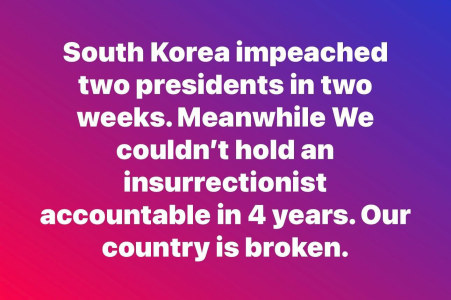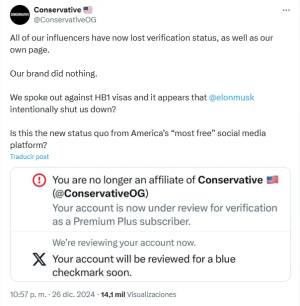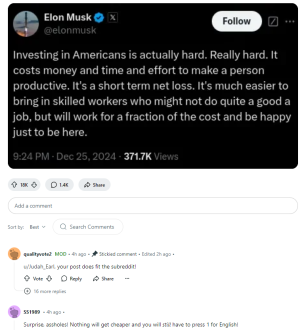Here. Let me make it easy for everyone so we can stop this nonsense.
And while the lies may have been more noticeable for Romney, don't forget that Obama practiced law and any good lawyer will use half truths so there is plausible deniability if someone confronts them on the matter.
http://factcheck.org/2012/10/dubious-denver-debate-declarations/
We found exaggerations and false claims flying thick and fast during the first debate between President Obama and his Republican challenger, Mitt Romney.
- Obama accused Romney of proposing a $5 trillion tax cut. Not true. Romney proposes to offset his rate cuts and promises he won’t add to the deficit.
- Romney again promised to “not reduce the taxes paid by high-income Americans” and also to “lower taxes on middle-income families,” but didn’t say how he could possibly accomplish that without also increasing the deficit.
- Obama oversold his health care law, claiming that health care premiums have “gone up slower than any time in the last 50 years.” That’s true of health care spending, but not premiums. And the health care law had little to do with the slowdown in overall spending.
- Romney claimed a new board established by the Affordable Care Act is “going to tell people ultimately what kind of treatments they can have.” Not true. The board only recommends cost-saving measures for Medicare, and is legally forbidden to ration care or reduce benefits.
- Obama said 5 million private-sector jobs had been created in the past 30 months. Perhaps so, but that counts jobs that the Bureau of Labor Statistics won’t add to the official monthly tallies until next year. For now, the official tally is a bit over 4.6 million.
- Romney accused Obama of doubling the federal deficit. Not true. The annual deficit was already running at $1.2 trillion when Obama took office.
- Obama again said he’d raise taxes on upper-income persons only to the “rates that we had when Bill Clinton was president.” Actually, many high-income persons would pay more than they did then, because of new taxes in Obama’s health care law.
- Romney claimed that middle-income Americans have “seen their income come down by $4,300.” That’s too high. Census figures show the decline in median household income during Obama’s first three years was $2,492, even after adjusting for inflation.
- Obama again touted his “$4 trillion” deficit reduction plan, which includes $1 trillion from winding down wars that are coming to an end in any event.
Romney sometimes came off as a serial exaggerator. He said “up to” 20 million might lose health insurance under the new law, citing a Congressional Budget Office study that actually put the likely number who would lose employer-sponsored coverage at between 3 million and 5 million. He said 23 million Americans are “out of work” when the actual number of jobless is much lower. He claimed half of all college grads this year can’t find work, when, in fact, an AP story said half either were jobless or
underemployed. And he again said Obama “cut” $716 billion from Medicare, a figure that actually reflects a 10-year target for slowing Medicare spending, which will continue to grow.
[h2]
Analysis [/h2]
The
debate was held Oct. 3 inside
a huge sports center at the University of Denver. It was the first of three scheduled debates between President Barack Obama and his Republican challenger, Mitt Romney. It was carried live on national TV networks and radio.
$5 Trillion Tax Cut
The president said Romney was proposing a $5 trillion tax cut and Romney said he wasn’t. The president is off base here — Romney says his rate cuts and tax eliminations would be offset and the deficit wouldn’t increase.
Obama: Governor Romney’s central economic plan calls for a $5 trillion tax cut — on top of the extension of the Bush tax cuts.
Romney: First of all, I don’t have a $5 trillion tax cut. I don’t have a tax cut of a scale that you’re talking about.
To be clear, Romney has
proposed cutting personal federal income tax rates across the board by 20 percent, in addition to extending the tax cuts enacted early in the Bush administration. He also proposes to eliminate the estate tax permanently, repeal the Alternative Minimum Tax, and eliminate taxes on interest, capital gains and dividends for taxpayers making under $200,000 a year in adjusted gross income.
By themselves, those cuts would, according to the nonpartisan Tax Policy Center, lower federal tax liability by “about
$480 billion in calendar year 2015” compared with current tax policy, with Bush cuts left in place. The Obama campaign has extrapolated that figure out over 10 years,
coming up with a $5 trillion figure over a decade.
However, Romney always has said he planned to offset that massive cut with equally massive reductions in tax preferences to broaden the tax base, thus losing no revenue and not increasing the deficit. So to that extent, the president is incorrect: Romney is not proposing a $5 trillion reduction in taxes.
The Impossible Plan
However, Romney continued to struggle to explain how he could possibly offset such a large loss of revenue without shifting the burden away from upper-income taxpayers, who benefit disproportionately from across-the-board rate cuts and especially from elimination of the estate tax (which
falls only on estates exceeding $5.1 million left by any who die this year). The Tax Policy Center concluded earlier this year that it
wasn’t mathematically possible for a plan such as Romney’s to cut rates as he promised without either favoring the wealthy or increasing the federal deficit.
Except for saying that his plan would bring in the same amount of money “when you account for growth,” Romney offered no new explanation for how he might accomplish all he’s promised. He just repeated those promises in some of the strongest terms yet.
Romney: My number one principal is, there will be no tax cut that adds to the deficit. … I will not reduce the taxes paid by high-income Americans. … I will lower taxes on middle-income families.
But he didn’t say how he’d pull off all those things at once.
‘Six Other Studies’
When the president referred to the Tax Policy Center’s criticisms, Romney claimed it was contradicted by several others.
Romney: There are six other studies that looked at the study you describe and say it’s completely wrong.
That’s not quite true, as
we previously reported when the count was at five. We found that two of those “studies” were blog items by Romney backers, and none was nonpartisan.
The only one of those “studies” by someone not advising Romney was done by
Harvey Rosen, a Princeton economics professor who once served as chairman of President George W. Bush’s Council of Economic Advisers.
Rosen concluded that Romney could pull off his tax plan without losing revenue assuming an extra 3 percent “growth effect” to the economy resulting from Romney’s rate cuts. That’s an extremely aggressive assumption, and in conflict with recent experience. Despite Bush’s large tax cuts in 2001 and 2003, for example,
real GDP grew by 3 percent or more for only two of his eight years in office. The average of the year-to-year changes was just over 2 percent.
Furthermore, Bush’s cuts reduced the total tax burden on the economy because they were not offset by base-broadening measures. In theory, at least, Romney’s revenue-neutral rate cuts would have even less of a stimulative effect than Bush’s cuts did.
Overselling the Health Care Law
Obama wrongly said that over the last two years, health care premiums have “gone up slower than any time in the last 50 years.” That’s true of health care spending, not premiums. But even if Obama had worded the claim correctly, he still would have been off in suggesting the Affordable Care Act had caused the slower growth in spending.
Obama: And the fact of the matter is that, when Obamacare is fully implemented, we’re going to be in a position to show that costs are going down. And over the last two years, health care premiums have gone up — it’s true — but they’ve gone up slower than any time in the last 50 years. So we’re already beginning to see progress.
The growth in employer-sponsored family premiums has fluctuated in recent years. It
went up just 4 percent from 2011 to 2012, according to an annual survey by the Kaiser Family Foundation, but it
increased 9 percent the year before, a big jump from the mere 3 percent increase between 2009 and 2010. Clearly the
growth rate over the last two years isn’t a 50-year low — it was sitting around 5 percent from 2007 to 2009. However, the
growth of health care costs is at a 50-year low for the past two years.
President Bill Clinton
used this statistic, correctly, in his speech at the Democratic National Convention, also implying that the federal health care law deserved credit. But as we said then, most of the law hasn’t even been implemented yet. And experts say it’s the sluggish economy that’s mainly responsible for the slower rate of spending.
As the Washington Post reported, experts with the Centers for Medicare and Medicaid Services said that many lost employer-sponsored insurance when they lost their jobs, and other individuals chose to “forgo health-care services they could not afford.”
The
New York Times quoted experts saying that consumers’ and medical professionals’ behavior could be changing in anticipation of the law, but it was still the economy that was the leading factor.
As for that increase in health care
premiums, experts
told us the federal health care law has had a limited impact on those, too, but the impact was to increase costs. They said the law was responsible for a 1 percent to 3 percent increase last year because of more generous coverage requirements.
Treatment Denied?
Romney repeatedly claimed that a new government board was “going to tell people ultimately what kind of treatments they can have.” Not true. It could make some binding recommendations about such things as what drugs or medical devices would be paid for by Medicare, but it has no legal power to dictate treatment or ration care.
The board is a 15-member panel that’s tasked with finding ways to slow the growth of Medicare spending. So, its work concerns Medicare, not everyone seeking health care. And,
according to the law, the board can’t touch treatments or otherwise “ration” care, or restrict benefits.
What’s officially called the Independent Payment Advisory Board, made up of appointed health care experts, medical professionals, and consumer representatives, would make binding recommendations to reduce the growth of spending. Congress could override them with a three-fifths majority in each house.
An
analysis by the Kaiser Family Foundation determined that the IPAB was limited to finding savings from “Medicare Advantage, the Part D prescription drug program, skilled nursing facility, home health, dialysis, ambulance and ambulatory surgical center services, and durable medical equipment.”
5 million jobs?
Obama claimed that “over the last 30 months, we’ve seen 5 million jobs in the private sector created.”
Obama’s figure is nearly half a million jobs short, according to current Bureau of Labor Statistics figures. But he’s including in his count a preliminary revision of jobs figures that BLS will not finalize until next year.
The current BLS numbers are
based on monthly surveys of businesses and government entities and count how many workers are on the payroll. Those figures
show that the number of private-sector jobs grew by 4.63 million between February 2010 and August of this year.
But BLS often revises those figures. Each year, the agency
looks over companies’ tax records in an effort to get a more accurate number, a process that takes several months. In late September, BLS
released a preliminary estimate for its revised numbers, adding 453,000 private-sector jobs to its count for the time period between April 2011 and March 2012. BLS will release its final numbers in February.
The addition of the preliminary estimate brings the number of private-sectors jobs to more than 5 million.
Obama ‘Doubled’ Deficit?
Romney: The president said he’d cut the deficit in half. Unfortunately, he doubled it. Trillion-dollar deficits for the last four years.
It’s not true that Obama “doubled” the deficit. He inherited a $1.2 trillion deficit and deficits have remained at or above that level, as Romney said, every year since then. Romney is right, however, that Obama has not kept his promise to cut the deficit in half.
Here’s the budget history in brief: The 2009 fiscal year began Oct. 1, 2008, when George W. Bush was president, and ended Sept. 30, 2009 with Obama as president. By the time Obama took office in January 2009, the nonpartisan Congressional Budget Office had already
estimated that the federal government would end fiscal 2009 with a $1.2 trillion deficit because of higher spending and lower revenues.
Obama added to the 2009 deficit, but not by much.
We found that Obama was responsible at most for an additional $203 billion. The government ended $1.4 trillion in the red that year. The deficits were about
$1.3 trillion each year for the next two years, and this fiscal year just ended with a shortfall of nearly
$1.2 trillion.
So, Obama didn’t double the deficits. But the president did pledge to cut them in half by the end of his first term during his
State of the Union address on Feb. 24, 2009. A Congressional Budget Office
analysis of the president’s latest budget plan doesn’t show the deficit being cut in half until 2014.
Same Rates as Under Clinton?
Obama repeated a favorite talking point, saying that his tax plan would return rates for the wealthy back to where they were during economically prosperous times under President Bill Clinton. But those making over $250,000 a year would actually pay more than they did under Clinton due to new taxes imposed on upper-income people to pay for the health care law.
Obama: But I have said that for incomes over $250,000 a year, that we should go back to the rates that we had when Bill Clinton was president, when we created 23 million new jobs, went from deficit to surplus, and created a whole lot of millionaires to boot.
Obama is referring to his plan to allow the Bush tax cuts to expire for higher-income taxpayers. The top federal income-tax rate would be allowed to rise from the current 35 percent to
39.6 percent, which was the rate that prevailed after Clinton’s 1993 tax increase, and before Bush’s tax cuts. The next-highest rate would go back to the Clinton-era 36 percent, starting with family income over $250,000 (or $200,000 for singles), up from the Bush rate of 33 percent.
But Obama did not account for the new taxes on those same upper-income taxpayers included in his Affordable Care Act. Starting next year, there will be a new
3.8 percent tax on “unearned” net investment income — such as capital gains from the sale of stocks or real estate, dividends, interest income, annuities, rents and royalties. Also
starting Jan. 1 is a new 0.9 percent Medicare surcharge on top of the current Medicare payroll tax. Both taxes apply to taxable compensation that exceeds $200,000 for singles, or $250,000 for couples filing jointly. Those two taxes combined are projected to bring in nearly $210 billion over the next seven years, according to the
nonpartisan Joint Committee on Taxation.
Income Loss
As he has done a number of times recently, Romney inflated the loss of income for middle-income Americans under Obama.
Romney: Middle-income Americans have seen their income come down by $4,300. This is a — this is a tax in and of itself. I’ll call it the economy tax. It’s been crushing.
Romney didn’t clarify whether he was talking about household or family income, but either way, the number is inflated.
The latest figures from the Census Bureau for 2011 show that real household income (inflation-adjusted)
fell by $2,492 during Obama’s first three years in office. Real family income (again, inflation-adjusted)
fell by $3,290.
There’s also some reason to think the income decline bottomed out a year ago. Sentier Research, which Romney has in the past cited as his source, says
in its latest report — issued Sept. 10, that household income rose in the year since September 2011, when Sentier’s Seasonally Adjusted Household Income Index hit its lowest point. (See Figure 1, Page 10.)
As part of the same riff on the hardships facing middle-income Americans, Romney also noted that “gasoline prices have doubled under the president.” That’s true, but as we have noted
before, the price of gasoline was unusually low when Obama took office due to the recession and financial crisis.
The average price for regular gasoline was $3.80 last week,
according to the U.S. Energy Information Administration, a bit more than double the $1.84 average the week Obama took office. But the average exceeded $4 a gallon for seven weeks during the summer of 2008, and it has never reached $4 under Obama.
Obama’s $4 Trillion Reduction Plan
Obama: I’ve put forward a specific $4 trillion deficit reduction plan. It’s on a website. You can look at all the numbers, what cuts we make and what revenue we raise.
Nonpartisan and bipartisan budget analysts have been critical of the methodology Obama employed to get to the $4 trillion in cuts outlined in “
The President’s Plan for Economic Growth and Deficit Reduction.” Specifically, the plan’s inclusion of “more than $1 trillion in savings over the next 10 years from our drawdowns in Afghanistan and Iraq,” was
criticized by Maya MacGuineas, president of the bipartisan Committee for a Responsible Federal Budget, as a “gimmick.”
“Drawing down spending on wars that were already set to wind down and that were deficit financed in the first place should not be considered savings,” MacGuineas said. “When you finish college, you don’t suddenly have thousands of dollars a year to spend elsewhere – in fact, you have to find a way to pay back your loans.”
And as we have
noted, even if you accept Obama’s $4 trillion claim, the president’s own Office of Management and Budget projected annual federal deficits would never be lower than $476 billion. That’s
higher than any year of the Bush administration except for the $1.4 trillion shortfall for fiscal 2009, for which
Obama himself bears some responsibility. And under Obama’s plan, deficits would again rise during the last three years of the 10-year period, reaching $565 billion in 2021 (see table S-1).
20 Million ‘Lose Their Insurance’?
Romney said “the CBO says up to 20 million people will lose their insurance as Obamacare goes into effect next year.” The
Congressional Budget Office said that may happen under a very pessimistic scenario. But the agency said it is more likely that about 3 million to 5 million fewer people, on net, would obtain health insurance from their employer under the law. The CBO also said that it was possible that more people would be covered by employers, not fewer, under a more optimistic scenario.
What’s more, these individuals wouldn’t necessarily “lose … insurance” entirely. Many would qualify for federal subsidies to buy policies offered through the new state exchanges established by the law, or qualify for Medicaid.
23 Million ‘Out of Work’?
Romney overstated the number of unemployed Americans when he said that there were “23 million people out of work.” There were
12.5 million unemployed Americans in August, the most recent figures from the Bureau of Labor Statistics.
Romney meant to refer to the unemployed, plus those working part-time who want full-time work (8 million) and those who are considered
“marginally attached” to the labor force because they have not looked for work in the past four weeks (2.6 million). All of that adds up to 23.1 million. Romney got his talking point closer to the truth when he said, “We’ve got 23 million people out of work or stopped looking for work in this country.” But he still left out the 8 million who are working part-time for economic reasons.
Jobless Grads
Romney said that “50 percent of college graduates this year can’t find work.” That’s not correct. Romney is likely referring to an
analysis of government data conducted for the Associated Press that found that — in 2011 — 53.6 percent of bachelor’s degree-holders under the age of 25 were unemployed or
underemployed that year. But it’s not correct to say that a person who is underemployed — meaning that they have a part-time job, or a job for which they were overqualified — can’t find work. It’s also a figure that applies to last year, not “this year” as Romney said.
Romney continued to repeat his misleading claim that Obama’s Affordable Care Act “cut Medicare $716 billion for current recipients.” That’s a reduction in the future growth of Medicare spending over 10 years, not a $716 billion slashing of the current budget.
$716 Billion, Again
Romney went on to say, “I want to take that $716 billion you’ve cut and put it back into Medicare.” But the fact is, the money isn’t being taken away from Medicare. Instead, Medicare would spend it, but over a longer period of time than was expected before the health care law. The law extends the solvency of the Medicare Part A trust fund.
As
we’ve explained before, most of this reduction in spending comes in Medicare Part A, or hospital coverage, through a reduction in the growth of payments to hospitals. Medicare payroll taxes, which fund Part A, are either immediately spent by Medicare as they come in, or they’re put in a trust fund. Medicare gets a bond for that tax money from Treasury. And any time Medicare wants to cash in that bond, it can. Treasury has to pay it — even if Treasury already spent the original money on something else.
Cutting the growth of Medicare spending is a good thing — without these $716 billion cuts, Part A’s trust fund is expected to be depleted in 2016. But with them, that date is pushed back to 2024. At that point, Medicare’s payroll tax revenue would only be enough to cover 87 percent of benefits.
That’s if the reductions in spending growth are actually instituted as the law envisions. Medicare’s actuaries are skeptical. They
have said that many experts believe the “price constraints would become unworkable and that Congress would likely override them.”
Romney said: “Some 15 percent of hospitals and nursing homes say they won’t take any more Medicare patients under that scenario.” That’s close to what Medicare’s chief actuary, Richard Foster,
said in congressional testimony in January 2011. Foster said that his office’s economic simulations “suggest that roughly 15 percent of Part A providers would become unprofitable within the 10-year projection period as a result of the productivity adjustments.” He added: “Although this policy could be monitored over time to avoid such an outcome, changes would likely result in smaller actual savings than described here for these provisions.”







































